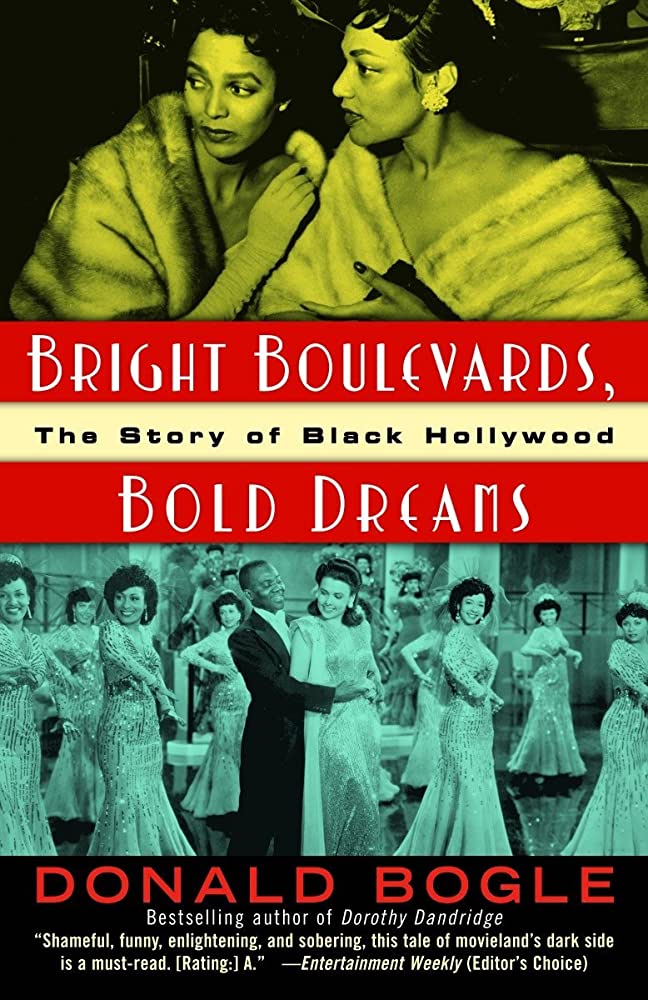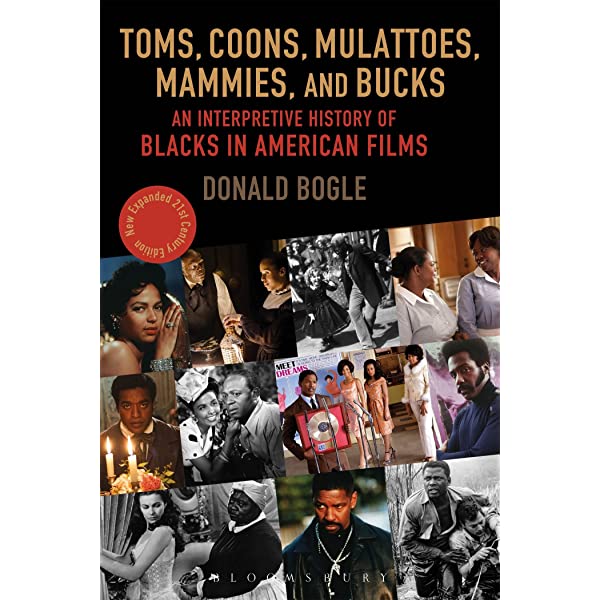Exclusive Interview with Film Historian Donald Bogle: TCMFF 2023 Robert Osborne Award Honoree
Turner Classic Movies pays tribute to its late host, Robert Osborne, with the Robert Osborne Award, presented annually at the TCM Classic Film Festival to an individual whose work has helped preserve the cultural heritage of classic film for future generations. In 2023, TCM honors film historian, author, and professor Donald Bogle for his pioneering studies of African American cinema and his tireless efforts to elevate the achievements of Black performers and filmmakers.
On the day he received the Robert Osborne Award at TCMFF 2023, I chatted with Donald Bogle about this distinction. Below are some career reflections and his insights into the contributions of Black performers in Hollywood history.

Q1: You have said, “The past had to be contended with. It had to be defined, recorded, reasoned with, and interpreted.” And that you felt it was your task to do so. How has your work been a calling?
Well, particularly with images of African Americans and cinema in the past, they were rigidly stereotyped images. But there were just these remarkable performances. And I felt that there were covert messages coming out in the movies from the 30s, 40s, into the 50s.
I wanted to explain that; I wanted to examine it. And I wanted people to see things that I felt they weren’t necessarily paying attention to. And so that became part of my commitment to indicate that there was a history of African Americans in movies—that it didn’t just start now and that it stretches back to the days of silent films. I wanted to explain that and to show the various social and political shifts that influenced movie images. That became something I was committed to because there were great performances that I just felt were being overlooked and were slipping through the cracks of history. They had to be brought back up to the surface so people could see them and understand them.
Q2: If you could recast the history of Black performers on film, who would stand alongside those who are remembered the greatest actors in Hollywood history?
In the past someone like Dorothy Dandridge in Carmen Jones gave an iconic performance. And, of course, Sidney Poitier. The thing that I find so interesting when we talk about the Oscars and it shows a shift in 1961 was the movie version of the 1959 Broadway play by Lorraine Hansberry, A Raisin in the Sun. In that you have Sidney Poitier, Claudia McNeil, you have the young Ruby Dee, Diana Sands, Lou Gossett, Ivan Dixon. There were extraordinary performances in that movie and not one person got an Oscar nomination, and that film holds up. You’re still amazed by those performances.
There are people today who are recognized that I feel we should really note. We don’t want to forget Denzel Washington and a movie like Glory, where he was in a supporting role and walked away with the movie. I think of Whoopie Goldberg and some of the women in The Color Purple. I wasn’t crazy about the film, but the performances are great performances. I think that an actress I like today, although I don’t think she’s yet gotten the role I want her to get, is Regina Hall. Regina Hall has worked and worked hard and she’s really very talented. She’s already achieved much, but I’m waiting for one of these big career defining roles. Viola Davis is a terrific actress and has made her imprint. So, I think that these performers do sit with the greats.
A shift has come about and that says something to us. That something has been happening and we don’t want it to stop happening.


Q3: What makes you the most optimistic about the future of the film industry and the place of Black performers in it?
I have seen things happening that give me hope for continued success. If we look at the Oscars, we’ve had more African Americans in the new millennium to be nominated or to win than ever before in history. Will Smith, despite everything else, had Oscar nominations. Jamie Foxx and Forest Whitaker won Oscars. Octavia Spencer won an Oscar. John Ridley won a best screenplay Oscar. So, there are all these winners and nominees and that does give me hope that things are changing.
But you know, things can be moving along and then suddenly, they can stop, and there is something else. Some years ago, they were saying that we were in a post racial age, that Obama’s presidency indicated that race was no longer an issue in America and look what we’ve seen since George Floyd. We’re back to something else and we say, “How did we get there?”
I think there has to be a repeated effort when it comes to film images. We want more people working in the industry—African Americans and women and other minorities—working behind the scenes as well as in front of the cameras. We can’t stop. We’ve got to just keep pushing.
Q4: The Robert Osborne Award recognizes an individual whose work has helped preserve the cultural heritage of classic film for future generations. What does this distinction mean to you as you reflect on your career?
I met Robert when I first came to TCM. I co-hosted with him a series called Race in Hollywood. I was a bit nervous about meeting him, and I found him to be very generous and a very thoughtful man. I was impressed with his knowledge of film history because he knew what happened when a film might have been in pre-production, then when it was being made and what happened afterwards. He just knew so much. It was such a wide range that he had, and I respected him.
So now to get this award, which is also kind of a tribute to him, and this kind of recognition from my work is really something. When I’m just working—working on a book and hoping I am able to finish this, and then I finish it and then I try to unwind and then I move on—I don’t think so much of it as a whole, as a body of work. I don’t really deliberate on that. So, this award gives me real pause, and it really makes me feel, well, I guess I have done something. I guess the work does mean something very special to other people. So that’s what it gives me. People are saying, “You don’t seem very excited.” I am, but I’m going to hold it in. I don’t want to lose it.
Q5: What unique opportunity does the TCM Classic Film Festival offer film fans—especially newer generations?
The festival is terrific for all generations, new and older. It’s a tremendous opportunity to see films you may have heard about and to see them on the big screen. There is just nothing like seeing those images blown up. You see these people from the past and you understand why they were stars and had such power over the audience. And you see filmmakers’ imagery on the big screen and how they were able to reach audiences and captivate them. There may be things that you’re totally unfamiliar with that are being shown at the festival. You may read about it and be intrigued and go see it and then it’s, “Wow! I didn’t know this was out there.” The festival does do that. It’s a wonderful movie-going experience.
